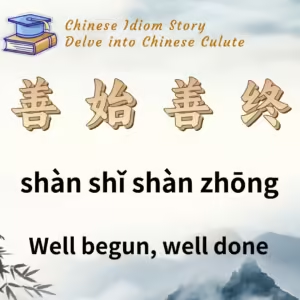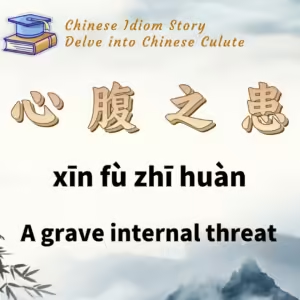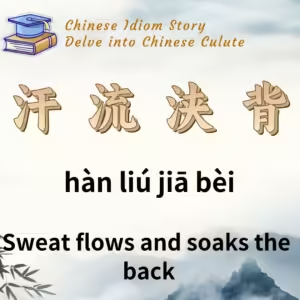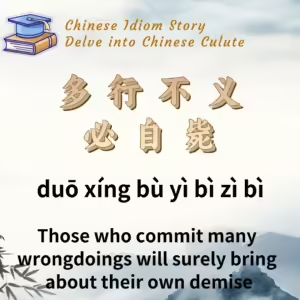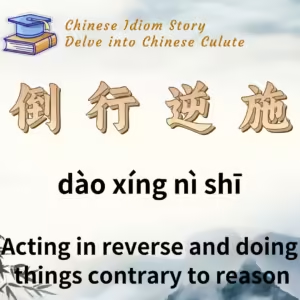
Chinese Idiom: 倒行逆施 (Dao Xing Ni Shi)
English Translation: Acting in reverse and doing things contrary to reason
pīn yīn: dào xíng nì shī
Idiom Meaning: Originally referring to actions that violate common sense, it now often describes outrageous behaviors or wrongdoings, including subversive acts.
Historical Source: Records of the Grand Historian: Biography of Wu Zixu (《史记 ·伍子胥列传》)
Idiom Story:
The idiom “倒行逆施” originates from the story of Wu Zixu (伍子胥) during the Spring and Autumn period. Wu Zixu, a native of the Chu State, suffered great personal loss when his family was unjustly persecuted by King Ping of Chu. His father, Wu Che, and elder brother, Wu Shang, were executed, forcing Wu Zixu to flee his homeland.
In his anguish, he sought refuge with his close friend, Shen Baoxu (申包胥), and vowed to destroy the Chu State to avenge his family. Despite Shen Baoxu’s sympathetic counsel to avoid such a path of vengeance, Wu Zixu remained resolute.
Eventually, Wu Zixu escaped to the southern Wu State, where he helped King Helu of Wu secure his throne. In 506 BC, Wu Zixu persuaded King Helu to lead an army against Chu, ultimately capturing its capital, Ying (郢都). However, by this time, King Ping of Chu had died, and his son, King Zhao, fled from the advancing Wu forces.
Unable to confront King Zhao directly, Wu Zixu’s pent-up fury from years of suffering erupted. He demanded that the grave of King Ping be exhumed to exact his revenge. Upon seeing the preserved corpse, Wu Zixu lashed out, mercilessly striking the body while proclaiming his vengeance against the “foolish king” who had wronged his family.
Shen Baoxu, learning of this desecration, sent a letter scolding Wu Zixu for his extreme actions, arguing that such behavior violated the natural order of things. In response, Wu Zixu expressed his desperation: “As the day wanes and my journey is far, I must act in reverse and do things contrary to reason.” He justified his actions as a desperate man, determined to pursue his vengeance despite the moral implications.
In a desperate attempt to aid Chu, Shen Baoxu traveled to the Qin State to seek military support. Initially, Qin’s King Ai was hesitant, suggesting delays, but Shen Baoxu’s unwavering grief and persistent weeping outside the palace for seven days eventually moved the king to action. Qin sent troops to assist Chu, successfully repelling Wu Zixu’s forces.
Thus, “倒行逆施” came to symbolize acts of extreme folly and moral deviation, emphasizing the consequences of acting without regard for righteousness or reason.


